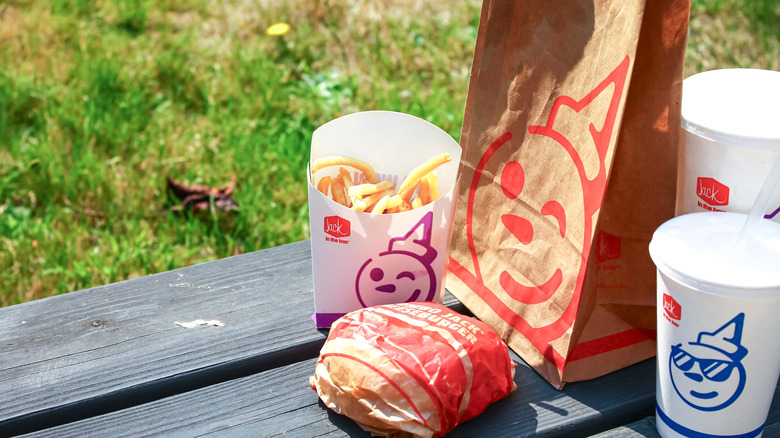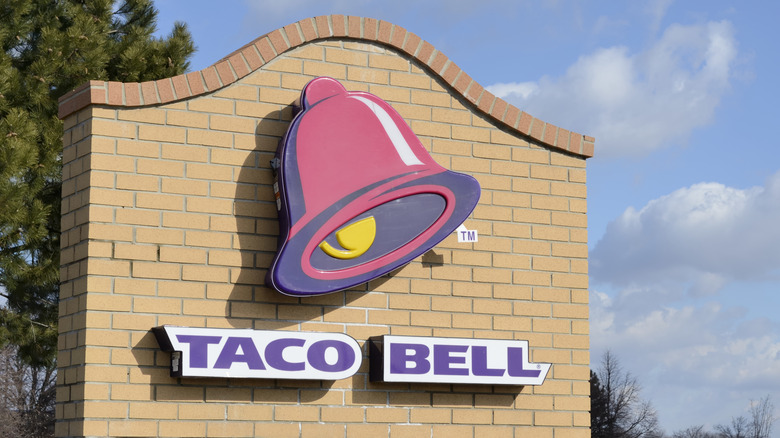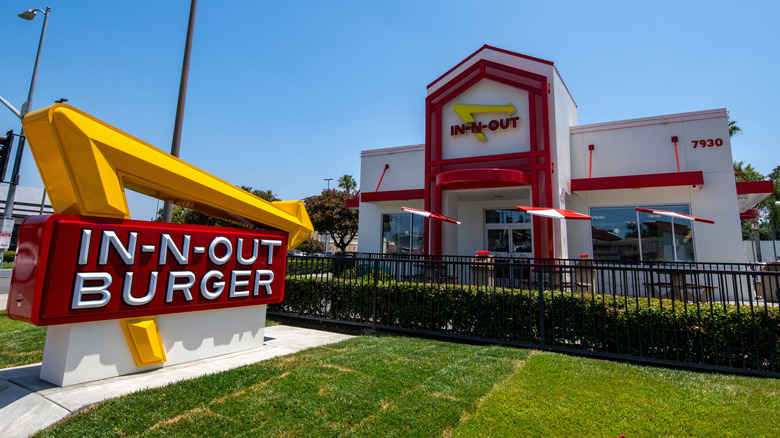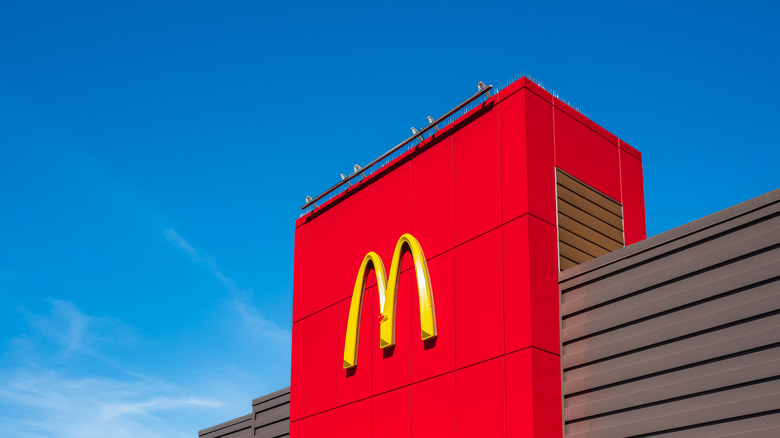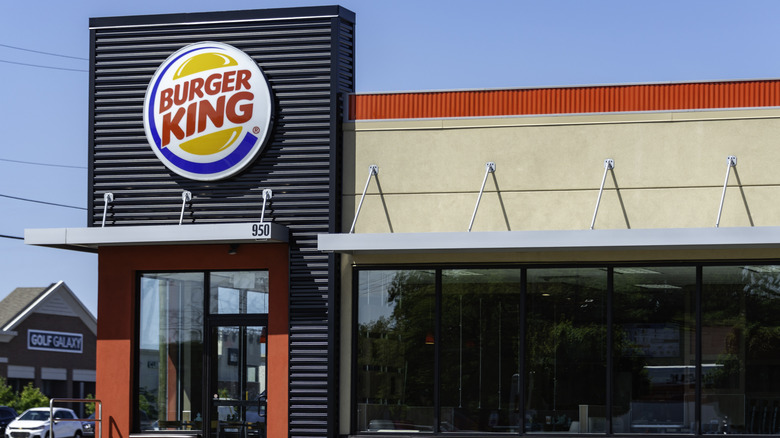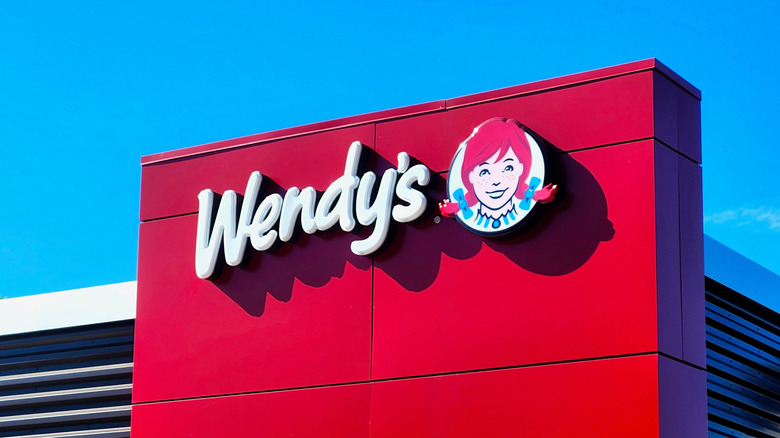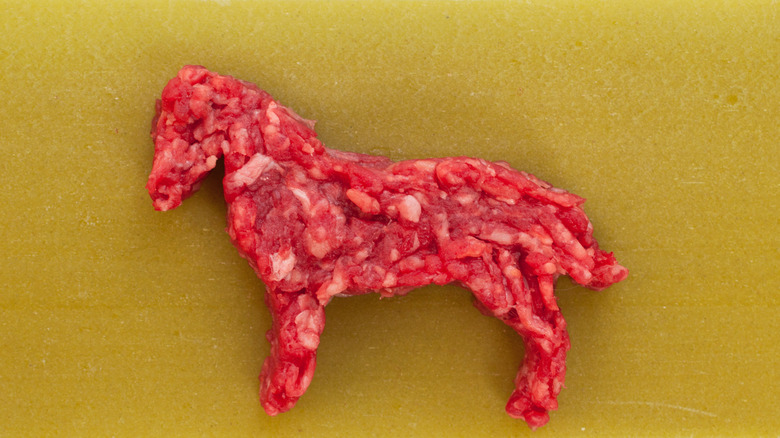8 Fast Food Chains That Have Faced Low-Quality Beef Controversies
Fast food is built on speed, consistency, and affordability. While it satisfies cravings and keeps millions fed daily, it doesn't always live up to the promise of quality — especially when it comes to beef. Over the years, some of the biggest names in the industry have come under fire for their meat: whether it's what's in it, how it's sourced, or the way it's cooked. In many cases, those concerns have gone far beyond customer complaints — they've led to lawsuits, media exposés, and full-blown public health crises.
Today's fast-food customer is more informed and skeptical than ever before. Ingredient lists are dissected. Supply chains are questioned, and when chains cut corners, the internet takes notice. Consumers expect more transparency, fewer additives, and higher standards — particularly when it comes to the beef in their burgers, tacos, and sandwiches. As this list shows, however, that hasn't always been the norm.
From E. coli outbreaks that resulted in tragic deaths to scandals involving mystery meat and misleading labels, these incidents have changed the way people think about fast food. Some sparked industry-wide reforms. Others simply faded from public memory. Regardless, every one of them tells a story about what can happen when quality control fails and public trust erodes.
These are the fast food beef scandals that made headlines — and in some cases, history.
Jack in the Box's 1993 E. coli outbreak
In 1993, a deadly outbreak of E. coli O157:H7 tied to undercooked hamburgers at Jack in the Box changed the fast food industry forever. The incident sickened more than 700 people across four states and led to the deaths of four young children. The public response was swift and intense — lawsuits were filed, headlines dominated the news cycle, and the chain's reputation took a devastating hit.
At the time, there was no federal law requiring restaurants to test for this strain of E. coli in beef or to report contamination — that changed after the outbreak. The bacteria was soon classified as an adulterant in ground beef, making it illegal to sell meat containing it. This turning point pushed the food industry — and the government — to take food safety more seriously.
The case also propelled attorney Bill Marler, who represented several victims' families, into the national spotlight. He has since become one of the most prominent voices advocating for stronger food safety laws. While Jack in the Box overhauled its cooking protocols and implemented more rigorous safety standards, the shadow of the tragedy remains a key chapter in the chain's history.
More importantly, the outbreak served as a wake-up call: fast food speed should never come at the cost of public health. Today's safer burgers are, in part, a direct result of this crisis — but experts argue the system still has serious blind spots.
Taco Bell's beef lawsuit
In 2011, Taco Bell became the center of a national controversy when an Alabama law firm filed a lawsuit accusing the chain of misleading customers about the contents of its seasoned beef. According to the plaintiffs, Taco Bell's beef filling didn't contain enough actual meat to meet the U.S. Department of Agriculture's (USDA) standards. Instead, it allegedly relied heavily on oats, fillers, and binders, making up more than 60% of the product.
The claim ignited a media frenzy with headlines raising serious questions about what Americans were really eating. Taco Bell quickly went into defense mode. Rather than quietly settle, the company launched a full-throttle public relations campaign. It spent millions on ads, videos, and even a superhero-themed parody to assert that its seasoned beef was, in fact, 88% real beef mixed with a proprietary blend of seasonings and ingredients.
Eventually, the law firm dropped the case, claiming satisfaction with Taco Bell's updated disclosures and marketing. Even without a courtroom showdown, the incident left a mark. Consumers were reminded just how murky ingredient labeling can be in fast food — especially when clever naming and proprietary recipes obscure the actual meat content.
Taco Bell may have won the legal battle, but it exposed just how thin the line is between clever branding and consumer confusion.
In-N-Out Burger's antibiotics policy controversy
In-N-Out Burger has long been celebrated for its simple menu and cult following, but its beef sourcing practices have drawn sharp criticism in recent years. In 2016, a coalition of over 50 consumer and environmental groups called on the chain to stop using beef raised with routine antibiotics. Their concern wasn't just about food quality — it was about public health. The widespread use of medically important antibiotics in livestock has been directly linked to the rise of antibiotic-resistant bacteria, often referred to as "superbugs."
In response to the mounting pressure, In-N-Out announced that it would begin working with its suppliers to reduce the use of these antibiotics in its beef supply. The chain expressed support for limiting medically important antibiotics to situations where they are truly necessary and stated that it was looking for alternatives.
However, by 2017, little visible progress had been made. Advocacy groups continued to push for a clear timeline and greater transparency. A national report card grading burger chains on antibiotic policies gave In-N-Out a failing grade for not establishing meaningful standards or reporting updates on its commitments.
For a brand known for freshness and quality, the lack of follow-through struck a nerve with critics. It also highlighted the ongoing tension in the fast-food industry between consumer expectations and the realities of sourcing on a massive scale.
McDonald's use of 'pink slime'
In the early 2010s, McDonald's faced growing scrutiny over one of its lesser-known ingredients: boneless lean beef trimmings, a processed meat product made from the remnants of beef cuts. The substance — which became infamous under the nickname "pink slime" — was treated with ammonium hydroxide to eliminate bacteria and stretch beef supplies more economically.
The controversy intensified after celebrity chef Jamie Oliver criticized the ingredient on his show, presenting it as an example of what's wrong with industrialized food production. While McDonald's claimed the decision to drop the ingredient had been made months earlier, the timing raised eyebrows. Public backlash was swift, with critics questioning why something banned for human consumption in the U.K. was still on menus in the U.S.
In a public statement, McDonald's emphasized that food safety remained a top priority and announced that it had already removed the ammonia-treated beef from its supply chain by August 2011. The company attributed the change to a desire to align global sourcing standards — but it was clear that public pressure played a major role in how the issue was perceived.
Though the ingredient was deemed legal and safe by regulators, the damage had already been done. The "pink slime" story became a cautionary tale about transparency in fast food — and a turning point in how chains marketed the quality of their meat.
Burger King's 2013 horse meat scandal
In 2013, Burger King found itself entangled in Europe's horse meat scandal — a sweeping contamination incident that damaged public confidence in major food brands. The chain's supplier, Silvercrest Foods, was discovered to have used beef containing trace amounts of horse DNA, despite assurances that their patties were made exclusively from British and Irish beef.
At first, Burger King denied any contamination in its products. However, independent tests revealed that burgers produced at the Silvercrest plant had indeed been tainted, and the company was forced to acknowledge the issue and apologize. The products tested in restaurants were clean, but samples taken directly from the supplier told a different story.
Burger King swiftly cut ties with Silvercrest, relocating its production to facilities in Germany and Italy. The company also promised to tighten its quality control procedures, including the potential addition of DNA testing and stricter traceability protocols for meat products. Executives emphasized their frustration, claiming the supplier had violated clear sourcing agreements.
While there were no reported health risks, the scandal became a symbol of the hidden complexities and vulnerabilities in fast-food supply chains. For Burger King, the damage was done — trust had been compromised, and its reputation took a hit across Europe. The incident served as a reminder that even the most familiar menu items can come with unsettling surprises.
Wendy's 2022 E. coli outbreak
In 2022, Wendy's found itself at the center of a serious E. coli outbreak that spread across six states and impacted dozens of customers. The Centers for Disease Control and Prevention (CDC) confirmed 109 cases of E. coli O157:H7, with more than half of those requiring hospitalization. Thirteen people developed hemolytic uremic syndrome — a potentially life-threatening condition that affects the kidneys — though, fortunately, no deaths were reported.
As public health officials investigated the outbreak, a clear pattern emerged: a significant majority of those infected had eaten at Wendy's shortly before becoming ill. Among those interviewed, over 80% recalled eating burgers or sandwiches that contained romaine lettuce. In response to the mounting evidence, Wendy's voluntarily removed romaine from sandwiches in affected regions. The chain emphasized that the lettuce used in salads was from a different supplier and was not connected to the illnesses.
While the lettuce was a common factor, the CDC was unable to confirm it as the definitive cause. No contaminated food was recovered for testing, and a traceback investigation failed to identify a single supplier or farm responsible for the outbreak. Still, the romaine remained the most likely suspect.
The incident renewed concerns about how vulnerable fast-food supply chains can be to foodborne illness. It also served as a reminder that, even without confirmed contamination, perceived links can have real reputational consequences. Wendy's took swift action, but the outbreak left a lasting impression on public perception.
McDonald's 2024 E. coli outbreak
In 2024, McDonald's faced another major food safety crisis when an outbreak of E. coli O157:H7 was linked to its Quarter Pounders. The outbreak spread across 14 states and left over 100 people sick. At least one person died as a result of the illness, and dozens more were hospitalized. While E. coli incidents have affected fast food before, this one hit particularly hard — not just because of the scale, but because it involved one of McDonald's signature burgers.
An U.S. Food and Drug Administration (FDA) investigation into the source of contamination pointed to problems at a facility that supplied slivered onions used in the Quarter Pounders. Inspectors reportedly observed unsanitary conditions, including food handlers not following basic hygiene protocols, such as handwashing and proper equipment sanitation. These lapses raised serious questions about oversight — not just at the supplier level, but within McDonald's entire supply chain.
McDonald's issued a public apology and quickly pulled the affected ingredients from impacted locations. Despite the fast response, the damage to the company's image had already been done. Consumer confidence took a hit, and the outbreak was widely covered in both mainstream news and food safety circles.
This incident marked a troubling continuation of the chain's past issues with beef safety and supply chain transparency. For a brand of McDonald's size and reach, the stakes are high — and this outbreak proved that even one weak link can have national consequences.
Taco Bell's horse meat controversy
In early 2013, Taco Bell's U.K. operations were pulled into the wider European horse meat scandal when British food regulators discovered that the chain's ground beef contained undeclared horse DNA. Tests conducted by the Food Standards Agency found that the contamination exceeded 1%, confirming that the presence wasn't accidental or the result of mere trace amounts.
The affected beef had been supplied by the same company that was previously implicated in other high-profile cases, raising questions about Taco Bell's supplier screening and product verification processes. As soon as the findings became public, Taco Bell removed all beef products from its UK restaurants and issued an apology to customers. The company also pledged to strengthen its quality assurance protocols and prevent similar issues in the future.
While Taco Bell emphasized that none of its U.S. locations were impacted by the scandal, the incident still drew international attention. For a brand known for its seasoned beef offerings, any question surrounding meat authenticity was particularly damaging. The contamination didn't pose a known health risk, but the reputational fallout was significant.
This episode illustrated the complexity of international supply chains and how even multinational brands can lose oversight of what's in their food. It also contributed to a broader consumer reckoning over food sourcing and label accuracy — one that Taco Bell and other chains could not ignore.

